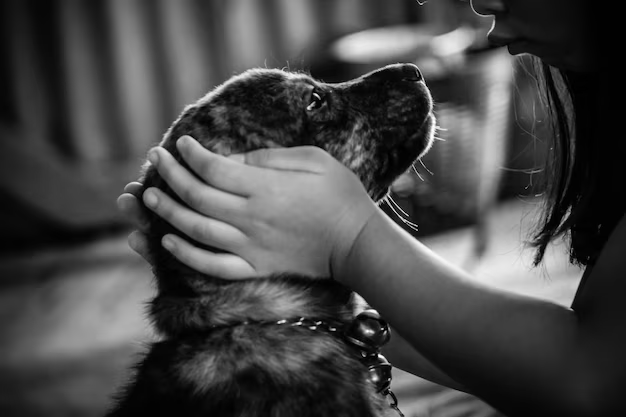
Losing a beloved animal companion can feel like a punch to the heart. The emptiness they leave behind isn’t just about their absence—it’s about losing a source of unconditional love, comfort, and joy. For many, grieving a pet mirrors the sorrow of losing a close human relative. This deep reaction isn’t surprising when you realize just how connected we become to the animals in our lives.
A Bond That Goes Beyond Words
The affection we share with our furry, feathered, or even scaled companions is something unique. It’s built on silent understanding, shared routines, and countless small moments. This emotional bond with pets is often more consistent and comforting than some human relationships.
Animals have an incredible ability to sense our moods, offer solace during tough times, and celebrate life’s little joys with us. Losing that kind of connection leaves an emotional void that’s hard to describe.
Pets as Family: More Than Just Animals
From the first day they enter our homes, pets become part of the family fabric. They’re with us for holidays, birthdays, weekend naps, and lazy Sunday afternoons. Whether it’s a dog greeting you after work or a cat curled up beside you, their presence brings warmth and meaning.
So when they’re gone, everything feels off—like a piece of our daily life has gone missing. Their absence is deeply felt by children, adults, and seniors alike.
The Silence After Goodbye: Why the Pain Feels So Strong
When our pets leave us, the pain often catches us off guard. The quietness in the house, the missing footsteps, the empty food bowl—all act as painful reminders. The sense of loss can trigger emotional waves: denial, sadness, anger, guilt, and even anxiety.
This experience is just as valid as mourning a person. And yet, society doesn’t always recognize the weight of this sorrow, which makes the grieving process even lonelier.
Support Systems That Make a Difference
No one should go through loss alone. That’s why pet loss support groups and online communities have become so important. They allow people to share stories, express emotions, and find comfort in others who truly understand what it means to lose an animal companion.
You might also find healing by:
- Writing a letter to your pet
- Creating a memory album or scrapbook
- Planting a flower or tree in their honor
- Speaking to someone who gets it—without judgment
Specialized Help Through Difficult Times
Not all grief heals with time alone. Some people find that seeking professional guidance helps them move forward. That’s where pet death counseling comes into the picture. Speaking to a trained grief counselor can provide emotional clarity, especially if you’re struggling with guilt, sudden loss, or feelings of hopelessness.
Counselors can guide individuals and families through coping strategies, provide a safe space to process emotions, and offer tools for long-term healing.
Honoring a Life Well-Lived
Memorializing your companion can be a powerful way to find closure. Personalized ceremonies, keepsakes like engraved tags or framed paw prints, and rituals like lighting a candle can help keep their memory alive. You don’t have to say goodbye all at once. These tributes allow you to remember your pet with love, not just loss.
A Helping Hand When You Need It Most
Grief doesn’t follow a schedule—and that’s okay. When sorrow lingers or becomes overwhelming, many turn to pet bereavement services. These often include hotlines, grief coaching, memorial planning, and community support groups. They’re not just for immediate aftermath; even years later, these services can provide peace of mind and emotional relief.
Why You Shouldn’t Feel Ashamed of the Pain
Many people feel embarrassed or misunderstood when they talk about how hard a pet’s death has hit them. But mourning a loyal companion isn’t something to hide—it’s proof of how much they meant to you. The heartbreak you feel is valid.
We need more open conversations about animal grief, and more compassion from those who haven’t experienced it firsthand. Empathy, not judgment, should be the default.
Society Is Catching Up
Thankfully, the world is beginning to recognize the significance of pet loss. Workplaces are slowly offering compassionate leave for employees who’ve lost pets. Schools are becoming more supportive when children experience this loss. And veterinary clinics are offering more resources to help owners through the hardest goodbye.
Even online platforms and apps now offer healing spaces, making it easier for people to access emotional support anytime, anywhere.
Children and Seniors Feel It Deeply Too
A child’s first brush with death often comes when a pet passes away. Explaining the situation with honesty and empathy can teach them about love, loss, and remembrance. Avoid saying things like “they went to sleep”—it can confuse or scare younger kids.
For older adults, especially those living alone, pets are loyal companions and emotional anchors. The grief they face after a pet’s death may even lead to increased feelings of isolation, making support systems crucial for their well-being.
Conclusion
Pets don’t just live in our homes—they live in our hearts. Saying goodbye to them can be one of the most painful experiences of our lives, yet it also reminds us how deep and beautiful that bond truly was.
Whether you’re navigating sorrow, supporting someone in grief, or looking for ways to honor a beloved pet, know this: You’re not alone. Compassion, connection, and care are out there—through therapy, tribute, and pet loss support networks that truly understand.

